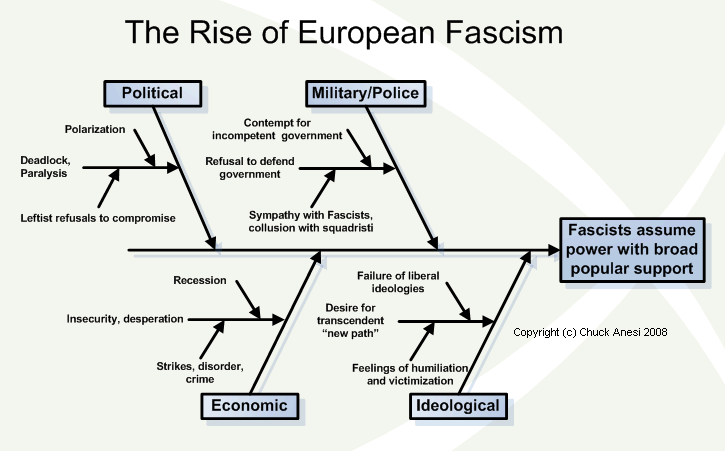dada wrote:If we define an American fascist as one who in case of conflict puts money and power ahead of human beings, then there are undoubtedly several million fascists in the United States. There are probably several hundred thousand if we narrow the definition to include only those who in their search for money and power are ruthless and deceitful. Most American fascists are enthusiastically supporting the war effort. They are doing this even in those cases where they hope to have profitable connections with German chemical firms after the war ends. They are patriotic in time of war because it is to their interest to be so, but in time of peace they follow power and the dollar wherever they may lead.
American fascism will not be really dangerous until there is a purposeful coalition among the cartelists, the deliberate poisoners of public information, and those who stand for the K.K.K. type of demagoguery.
- Henry Wallace, "The Danger of American fascism" article in NYT, 1944
http://newdeal.feri.org/wallace/haw23.htm
I would say that in America today, you can clearly see that purposeful coalition in action.
Sure.
But Henry Wallace was calling it fascism as a matter of New-Deal era rhetorical strategy, which he explicitly admits requires him to completely re-define the term. The only reason that he doesn't explicitly state that what he means by "American fascism" is "the political position taken by opponents of the New Deal, which I, Henry Wallace, condemn in the strongest possible terms as an evil equivalent to fascism, because that's my job as Vice President in this, an election year" is that back in 1944, that already would have been clear to everybody: The country was then at war with a fascist regime. So you called your political enemies fascists. A la "You're with us, or you're with the terrorists," basically.
Although he was kicked off the ticket three months after writing that, anyway. Just as a side note.My main point is that he's using the word "fascism" rhetorically to describe a non-fascist threat because that was a politically advantageous way for him to talk about oligarchy at the time and under the circumstances.
And there's nothing necessarily wrong with that, when it's applicable. But it isn't always applicable.



